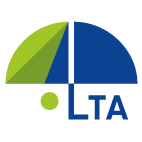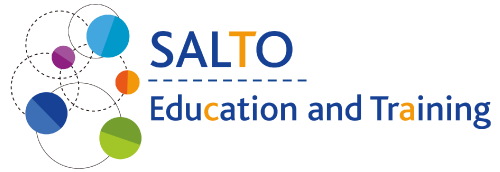Blended mobilities as a means of improving study programmes

Main Info
TCA Description
The rationale comes from the new type of mobility – blended mobility which comes hand in hand with digitalization – one of the main goals of the new programme. Through this THO NA plans to get together experienced and inexperienced teachers in this topic and by sharing good practice broaden participants’ horizons by showing them how blended mobilities can boost their curricula and attract students in case mobility is fully recognized and supported by high level of digitalization at school.
- Sharing of good practice examples among participants;
- Establishment of new contacts;
- Gaining knowledge about blended mobilities, infrastructure the school needs, how are mobilities recognized.
24th May: registration from 16:30, programme starts with welcome activities and dinner
25th May: full day programme, social programme in the evening, joint dinner
26th May: half-day programme, lunch, departures around 13:30
Participants are required to stay during the whole duration of the event.
Slovak NA covers accommodation for 2 nights (24-26 May), meals and social programme.
The event will take place in Hotel Loft https://www.lofthotel.sk/en
*This is a postponed TCA from October 2022.
Partners and participants
SE and VET teachers of lower and upper secondary schools (ISCED 2 and ISCED 3), experienced teachers whose schools offer a variety of blended courses / mobilites together with inexperienced teachers who would like to get inspired and are motivated to include blended mobilities and courses into curricula.
Pending booked places
Accepted places
TCA Participant Application
Long-term Activity Info
Due to rapid technological development and a growing
need for sustainability, digital teaching and learning in education had already
been in focus for a while prior to the pandemic – a paradigm shift towards
digitisation in education was already underway. Current events have accelerated
the paradigm, making way for a new normal. The Covid-19 pandemic and the
physical distancing that followed have affected all walks of society, also
education. In order to keep education running, educational institutions have
had to quickly adapt to the situation. This has resulted in an unprecedented push to digital teaching and
learning.
Digitalisation offers many opportunities, but also presents many challenges. Reinvention is not always a choice. The coronavirus is permanently reshaping the way we live, teach and learn. Some of the behaviours developed in crisis — including wide-scale digital adoption — will outlast the pandemic, well after restrictions on activity are lifted.
Digital transformation in education is more necessary during this crisis, not less. Resources — both in terms of talent and money — will likely be constrained. Digital initiatives may need to be reprioritised based on relevance in the current environment. New problems and opportunities may come to light with greater urgency. Digital transformation roadmaps are needed. It is key to continue to experiment and innovate with digital solutions. It is vital to train target groups to use existing digital methods more effectively and create new ones as well.
The overall aim of this long-term activity is
- to encourage educational institutions across Europe to use lessons learnt during the Covid-19 pandemic, and create state-of-the-art and update existing methodologies for digital learning at individual, community and institutional level; and
- to use them strategically in the future.
- thereby influencing Erasmus+ Programme and policy objectives at national and EU level
We are planning to proceed the topic during the available time frame through seminars and research activites on three levels:
Seminars:
- 1st (individual) level: key actors, teachers, school staff, etc. – aiming to improve digital awareness, skills and competences, to enrich methodology, and to facilitate digital content creation as well as to encourage the use of existing platforms such as e-Twinning, etc.
- 2nd (community) level: networking among teachers in the online space – aiming to facilitate communication and collaboration to be channelled into classroom teaching by learning from one another as well as emphasising the use of existing platforms such as e-Twinning, etc.
- 3rd (institutional) level: school leaders, decision makers – aiming to upscale and support digital transformation into institutional level.
- Research:
Through activities of the LTA 2021-2024, participants are supposed to learn about existing and tested practices that can be incorporated into their own strategies as well as identify possible gaps leading to further and better Erasmus+ projects and encourage the development of state-of-the-art solutions.
LTA continues to welcome any NAs
- wishing to adopt Digital wellbeing programme realized by HU01 to implement in 2022/23 budget year as organizers
- wishing to examine any other aspect of digitization in schools as an organizer,
- or co-organizer/co-financing partner in any other activity implemented by other national agencies,
- or of course as sending participants to any LTA-supported event.
The expected impact of the LTA in ascending order of policy effect:
- Coordinating LTA in Digitalisation with research, events, study visit for quality projects in E+
- Supporting Erasmus+ programme with high quality Digitalisation project
- Exploiting E+ project results in the development of SE actors, institutions in the field of digitalisation
- Upscaling project results to policy level for improving E&T sector


